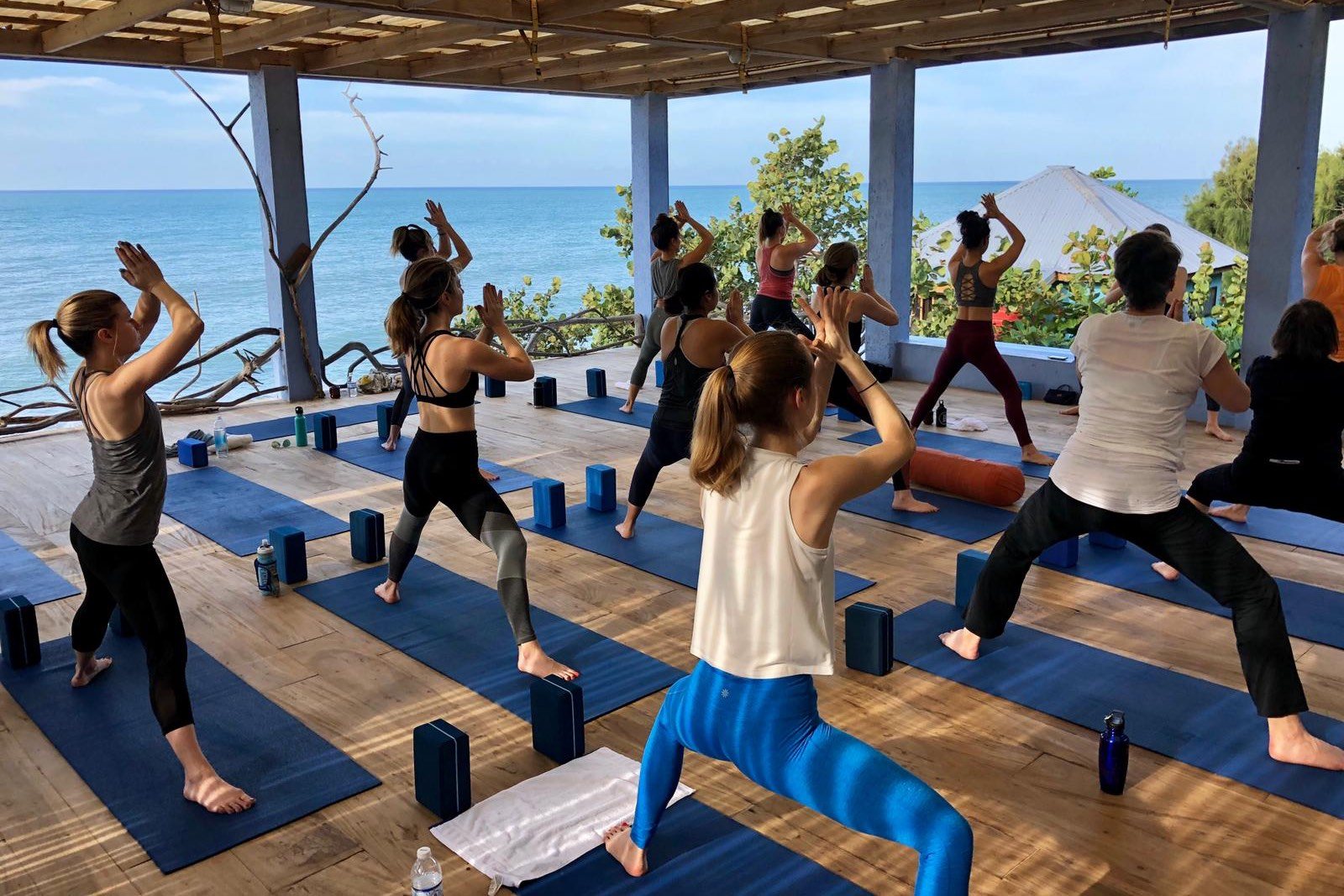In today’s fast-paced and demanding world, finding moments of peace and tranquility can be challenging. The constant hustle and bustle of daily life often leave us feeling exhausted, stressed, and disconnected from our own well-being. That’s where health and wellness retreats come in, offering a transformative escape that nurtures both the body and mind. These retreats have gained tremendous popularity in recent years, as more and more people recognize their ability to rejuvenate and improve overall well-being.
The Benefits of Health and Wellness Retreats
Physical Benefits Our bodies are remarkable machines that require proper care and attention. Health and wellness retreats offer a range of physical benefits that help us reset and recharge.
- Detoxification and Cleansing: Retreats often provide opportunities for detoxification and cleansing, whether through nutritious meals, juice fasting, or specialized detox programs. These practices eliminate toxins, improve digestion, and boost the body’s natural healing processes.
- Improved Fitness and Flexibility: Many retreats incorporate physical activities like yoga, Pilates, hiking, or fitness classes. These activities improve strength, flexibility, and cardiovascular health, promoting a more active and balanced lifestyle.
- Enhanced Nutrition and Healthy Eating Habits: At health and wellness retreats, nutritious and wholesome meals are often a focal point. Retreat participants have the opportunity to learn about healthy cooking techniques, mindful eating practices, and receive guidance on maintaining a well-balanced diet.
Mental and Emotional Benefits A healthy mind is just as important as a healthy body. Health and wellness retreats offer a sanctuary for mental and emotional well-being.
- Stress Reduction and Relaxation: Retreats provide an escape from the daily stressors of life, allowing participants to unwind and recharge. With activities like meditation, spa treatments, and mindfulness practices, retreats offer a safe space to let go of tension and cultivate a sense of calm.
- Mental Clarity and Mindfulness: Retreats often focus on mindfulness practices, such as meditation and breathing exercises. These practices enhance mental clarity, improve focus, and promote a deep sense of presence and awareness.
- Emotional Healing and Self-Discovery: Through workshops, therapy sessions, and self-reflection exercises, retreats facilitate emotional healing and self-discovery. Participants have the opportunity to explore their inner landscape, heal past wounds, and develop a deeper understanding of themselves.
Types of Health and Wellness Retreats
Yoga and Meditation Retreats:
Yoga and meditation retreats are popular choices for those seeking inner peace and spiritual growth. These retreats delve into the profound impact of yoga and meditation on physical and mental health, offering various styles and practices to suit different needs.
- Exploring the Profound Impact of Yoga and Meditation: Yoga and meditation practices have been proven to reduce stress, improve flexibility, promote relaxation, and increase overall well-being. Retreats delve into the science and philosophy behind these practices, allowing participants to experience their transformative benefits firsthand.
- Highlighting Different Styles of Yoga and Meditation Retreats: From gentle Hatha yoga to dynamic Vinyasa flow or transcendental meditation, retreats cater to various levels of experience and preferences. Participants can choose a retreat that aligns with their personal goals and interests.
- Benefits of Incorporating Mindfulness Practices into Daily Life: Mindfulness is a key component of yoga and meditation retreats. Participants learn how to cultivate mindfulness and bring its principles into their everyday lives, fostering a greater sense of presence and peace.
Spa and Wellness Retreats:
Spa and wellness retreats offer a luxurious and rejuvenating experience for those seeking deep relaxation and physical restoration.
- Understanding the Therapeutic Benefits of Spa Treatments: Spa retreats provide a range of therapeutic treatments, including massages, facials, hydrotherapy, and more. These treatments not only relax and rejuvenate the body but also have therapeutic effects on the mind and emotions.
- Exploring Various Spa Retreat Offerings: Retreat participants can indulge in a variety of spa treatments tailored to their needs. From Swedish massages to aromatherapy or hot stone therapy, these retreats offer a holistic approach to relaxation and well-being.
- The Role of Holistic Therapies in Promoting Relaxation and Well-being: Spa and wellness retreats often incorporate holistic therapies such as acupuncture, reiki, or reflexology. These treatments address imbalances in the body and promote overall well-being, leaving participants feeling refreshed and revitalized.
Nature and Adventure Retreats:
Nature and adventure retreats provide an opportunity to reconnect with the natural world and harness its healing power.
- Embracing the Healing Power of Nature: Spending time in nature has been shown to reduce stress, improve mood, and enhance overall well-being. Nature and adventure retreats allow participants to immerse themselves in the beauty of natural surroundings, reaping the benefits of a deeper connection with the earth.
- Activities such as Hiking, Forest Bathing, and Outdoor Meditation: Nature retreats often incorporate activities like hiking through scenic trails, practicing forest bathing (immersing oneself in the atmosphere of the forest), or engaging in outdoor meditation. These activities provide opportunities for physical movement, relaxation, and inner reflection.
- How Connecting with Nature Enhances Physical and Mental Health: Being in nature has a profound impact on our physical and mental well-being. Nature retreats offer a chance to unplug from technology, breathe in fresh air, and restore our vitality. The sights, sounds, and energy of natural surroundings contribute to a greater sense of peace and harmony.
Choosing the Right Health and Wellness Retreat
Identifying Personal Goals and Needs:
Before embarking on a health and wellness retreat, it’s essential to identify personal goals and needs. Whether seeking physical rejuvenation, mental clarity, or emotional healing, clarifying these objectives will guide the retreat selection process.
- Defining Specific Health and Wellness Objectives: Consider what aspects of your well-being you’d like to address. Is it physical fitness, stress reduction, or personal growth? Defining specific objectives will help you narrow down the retreat options.
- Assessing the Desired Level of Intensity and Activity: Some retreats offer intensive physical programs, while others focus more on relaxation and self-reflection. Assessing your desired level of intensity and activity will ensure that you choose a retreat that aligns with your preferences and capabilities.
Researching and Reviewing Retreat Options:
- Reading Reviews and Testimonials: Researching retreat options by reading reviews and testimonials from previous participants can provide valuable insights into the quality of the retreat experience and the expertise of the facilitators.
- Exploring Retreat Itineraries and Daily Schedules: Reviewing retreat itineraries and daily schedules will help you understand the structure and activities included in each retreat. Consider whether the program aligns with your goals and interests.
- Considering Location, Accommodations, and Amenities: Location plays a significant role in the retreat experience. Consider whether you prefer a serene beachfront setting, a tranquil mountain retreat, or a lush forest environment. Additionally, assess the quality of accommodations and the availability of amenities that will contribute to your overall comfort and enjoyment.
Consulting with Professionals:
- Seeking Advice from Health Practitioners or Wellness Experts: If you have specific health concerns or dietary restrictions, it’s advisable to consult with health practitioners or wellness experts before choosing a retreat. They can provide guidance and recommendations based on your unique needs.
- Discussing Any Specific Health Concerns or Dietary Restrictions: Communicating your health concerns or dietary restrictions with the retreat organizers will ensure that they can accommodate your needs and provide appropriate support throughout the retreat.
The Journey of Transformation
Preparing for the Retreat:
- Packing Essentials for a Successful and Comfortable Experience: Consider packing essentials such as comfortable clothing for physical activities, appropriate footwear, toiletries, and any personal items that contribute to your comfort and well-being during the retreat.
- Familiarizing Oneself with Retreat Guidelines and Rules: Review the retreat guidelines and rules provided by the organizers to ensure a smooth and enjoyable experience. Familiarize yourself with any specific instructions or recommendations they provide.
Immersion in the Retreat Experience:
- Embracing the Schedule and Daily Activities: Wholeheartedly embrace the retreat schedule and the activities planned for each day. Be present and open to new experiences, allowing yourself to fully engage in the transformative journey.
- Engaging in Self-Reflection and Self-Care Practices: Take advantage of the opportunities for self-reflection and self-care that the retreat offers. Engage in practices such as journaling, meditation, or solitary walks to deepen your connection with yourself and nurture your well-being.
- Nurturing Connections with Fellow Retreat Participants: Interacting with fellow retreat participants can be a rewarding aspect of the experience. Engage in conversations, share experiences, and build connections that may continue long after the retreat ends.
Carrying the Benefits Forward:
- Integrating Newfound Practices into Everyday Life: After the retreat, integrate the practices and lessons learned into your daily life. Whether it’s maintaining a regular meditation practice, adopting healthier eating habits, or finding moments of stillness amidst a busy schedule, carry the retreat’s benefits forward and make them a part of your ongoing wellness journey.
- Sustaining a Healthy and Balanced Lifestyle Post-Retreat: The true impact of a health and wellness retreat lies in its ability to inspire lasting change. Maintain a commitment to self-care, prioritize your well-being, and continue to seek opportunities for growth and rejuvenation.
Conclusion:
Health and wellness retreats offer a transformative journey to inner bliss, providing a sanctuary to nourish the body, mind, and spirit. The benefits of these retreats, ranging from physical rejuvenation to emotional healing and self-discovery, are undeniable. By choosing the right retreat, immersing oneself in the experience, and carrying the benefits forward, individuals can embark on a transformative journey that enhances their overall well-being. Investing in self-care and prioritizing health and wellness are powerful steps towards living a more balanced and fulfilling life.




